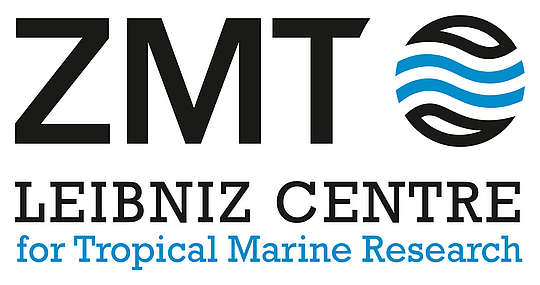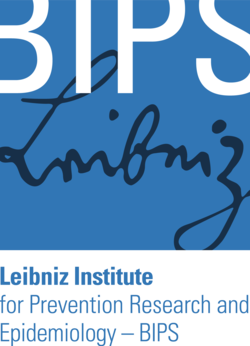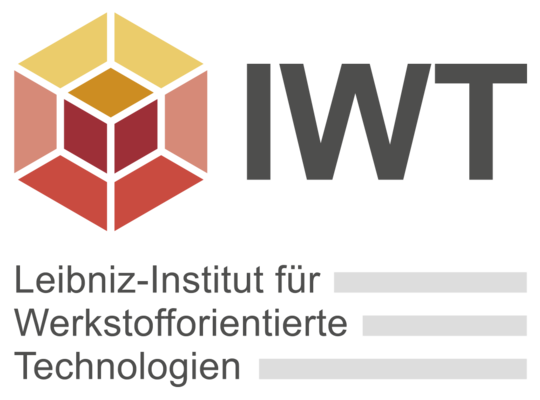Dr. Daniel Otero Baguer

Daniel Otero Baguer is a Post-doctoral Researcher and Head of Digital Pathology Group at the Faculty Mathematics and Computer Science of the University of Bremen.
In his research he deals with inverse problems, machine learning, image and signal processing, computational engineering, parameter indentification and computational pathology.
Data Train courses
Operator Track - Data Scientist: Deep learning
Contact
"I enjoy showing young researchers the amazing field of deep learning and its amazing applications. Also, I always try to find the easiest way to for students to learn the concepts, and this is often times a great challenge." – Daniel Otero Baguer
Prof. Dr. Benedikt Buchner

Benedikt Buchner is Professor of Civil Lawand the Director of the Institute for Information, Health and Medical Law (IGMR) at the University of Bremen.
His research focuses on data protection and information law: Research depends on the free use of research data while the (exclusivity) interests of those whose personal data are to be processed for research purposes or those who own the copyright for study or similar data are opposed to this. In this context, it is task of the law to resolve this conflict.
Data Train courses
Starter Track: Data protection and licenses
Contact
"Research Data Management is an important as well as difficult challenge, which can only be met if all the disciplines concerned closely cooperate." – Benedikt Buchner
Dr. Arjun Chennu

Arjun Chennu is Group Leader of the team Data Science and Technology at the Leibniz Centre for Tropical Marine Research (ZMT) in Bremen.
His research explores ways to leverage the diverse and rapidly growing techniques in data science, machine learning and statistical modelling towards data-driven analytics for the benefit of tropical marine sciences.
His team bring together expertise across domains of habitat mapping, computer vision, machine learning, neural networks, biogeochemistry, benthic ecology, probabilistic analyses, stakeholder utility networks, software development, optical physics, sensor systems and platforms, engineering of data acquisition and analytical workflows.
Data Train courses
Operator Track – Data Steward: Reproducibility in science: How and why?
Contact
arjun.chennu(at)leibniz-zmt.de
"Data is the currency of the 21st century. We need to invest this currency better to manage and grow our wealth of knowledge." – Arjun Chennu
Prof. Dr. Thorsten Dickhaus

Thorsten Dickhaus is Professor for Mathematical Statistics at Faculty of Mathematics and Computer Sciences (FB 3) at the University of Bremen.
Thorsten Dickhaus studied mathematics in Aachen and Düsseldorf, and he received his Dr. rer. nat. degree in mathematics and application areas from Heinrich-Heine-University Düsseldorf in 2008. Afterwards, he worked in Berlin, first as a PostDoc at the Berlin Institute of Technology, then as a junior professor at the Humboldt-University and finally as a scientific staff member at the Weierstrass Institute for Applied Analysis and Stochastics. Since March 2015, Thorsten Dickhaus is Full Professor and Head of the Working Group “Mathematical Statistics” at Faculty 3: Mathematics and Computer Science at the University of Bremen. Since 2018 he is the Vice Dean of Academics of the Faculty of Mathematics and Computer Science. His research interests include the development of statistical methods and their applications, in particular to high-dimensional and complex structured data from the life sciences and from economics.
Data Train courses
Operator Track – Data Scientist Track: Quantitative analyses for data science
Contact
"I want to contribute to the Data Train education program for a better mathematical understanding about data science applications and, because data science crucially relies on the interdisciplinary exchange of ideas and competences." – Thorsten Dickhaus
Prof. Dr. Vanessa Didelez

Vanessa Didelez is Deputy Head of the Department of Biometry and Data Management at the Leibniz-Institute for Prevention Research and Epidemiology - BIPS and Professor of Statistics with focus on Causal Inference at the University of Bremen.
Her research deals with the statistical modelling of and methods for data analysis. Specifically, she aims at developing statistical approaches to address questions about the consequences of (possibly hypothetical) interventions, e.g. by how much would a given increase in physical activity reduce childhood obesity? This kind of inference is known as causal inference. The particular statistical challenge consists of adequately addressing weaknesses and limitations of the data, such as lack of, or imperfect, randomization, systematic selection or drop-out etc. These need to be accounted for by suitable models and methods. A key prerequisite is the in-depth understanding and scrutinizing of the underlying assumptions so that these can be made plausible, either empirically or based on subject matter knowledge. Furthermore, Prof Didelez focusses on time-structured data, such as cohort data or event-history or survival data. She has developed new approaches for causal path analysis, dynamic graphical models and causal discovery. The new methods have applications in epidemiology or public health, such as for analysing the causes and effects of childhood obesity, or for cancer prevention or dementia research.
Data Train courses
Starter Track: Asking the right research questions in data science
Operator Track – Data Scientist Track: Causal learning
Contact
"I believe that data science can make an enormous contribution to evidence-based decision making. This requires the ability to carefully and critically analyse data, which is what I strive to teach on the Data Train." – Vanessa Didelez
Dr. Martin Dörenkämper

Martin Dörenkämper is a Post-Doctoral Researcher at the Fraunhofer institute for Wind Energy Systems (IWES) in the Department of Aerodynamics, CFD and Stochastic Dynamic in Oldenburg.
Martin Dörenkämper has been working on evaluation of weather and wind farm data in the context of wind energy research since more than 10 years. After his undergraduate and graduate studies in meteorology at the Universities of Hamburg and Oklahoma, his PhD research at the University of Oldenburg focused on energy meteorology. His current research addresses the improvement and validation of industry-suited models for wind energy siting and wind farm yield analysis applications. This work includes working with multi-dimensional as well as time-series based data of various complexity and confidentiality levels. At Fraunhofer IWES Martin coordinates joint research projects with industrial and academic partners.
Data Train courses
Starter Track: Managing confidential data
Contact
martin.doerenkaemper(at)iwes.fraunhofer.de
"Within Data Train, we would like to share our experience from applied R & D and work with confidential data especially in close exchange with the industry." – Martin Dörenkämper
Prof. Dr. Rolf Drechsler

Rolf Drechsler received the Diploma and Dr. phil. nat. degrees in computer science from the Johann Wolfgang Goethe University in Frankfurt am Main, Germany, in 1992 and 1995, respectively. He worked at the Institute of Computer Science, Albert-Ludwigs University, Freiburg im Breisgau, Germany, from 1995 to 2000, and at the Corporate Technology Department, Siemens AG, Munich, Germany, from 2000 to 2001. Since October 2001, Rolf Drechsler is Full Professor and Head of the Group of Computer Architecture, Institute of Computer Science, at the University of Bremen, Germany. In 2011, he additionally became the Director of the Cyber-Physical Systems Group at the German Research Center for Artificial Intelligence (DFKI) in Bremen.
His current research interests include the development and design of data structures and algorithms with a focus on circuit and system design. He is an IEEE Fellow.
From 2008 to 2013 he was the Vice Rector for Research and Young Academics at the University of Bremen. Since 2018 he is the Dean of the Faculty of Mathematics and Computer Science. He is one of the founders and currently the spokesperson of the Data Science Center at University of Bremen (DSC@UB).
Data Train courses
Starter Track: Computer science basics for data science
Contact
PD Dr. Christian Fieberg

Christian Fieberg is Post-Doctoral Researcher for the field of Business Administration, especially Empirical Capital Market Research and Derivatives at the Faculty of Business Studies and Economics at the University of Bremen.
Working with large data sets, the use of complex methods (especially from the areas of statistics, econometrics, optimization, operations research, simulation and machine learning), the use of statistical software (especially Matlab / Octave / Freemat, R, Stata, Python, Excel / VBA) and the transfer of research results to software tools that can be used in practice is part of his research.
Data Train courses
Operator Track – Data Steward: Getting started in R
Operator Track – Data Steward: Erste Schritte mit MATLAB
Contact
"I am interested in a strong collaboration between all U Bremen Research Alliance members to drive qualification in research data management and data science forward." – Christian Fieberg
Prof. Dr. Frank Oliver Glöckner

Frank Oliver Glöckner is Professor of Earth System Data Science at the Department of Geosciences at the University of Bremen. He is head of Data at the Computing and Data Center of the Alfred Wegener Institute Bremerhaven and Adjunct Professor for Bioinformatics at the Jacobs University Bremen. He is head of the Data Publisher for Earth and Environmental Science PANGAEA at MARUM and speaker of the NFDI4BioDiversity consortium.
His interdisciplinary team of geologists, biologists, engineers, and software developers located at the AWI and MARUM has a national and international proven track record in research data management, data logistics and data science.
Data Train courses
Starter Track: Data and information management
Operator Track – Data Steward Track: How to write a data management plan?
Contact
frank.oliver.gloeckner(at)awi.de
"In the U Bremen Research Alliance I would like interested in a strong collaboration between all members to drive qualification in research data management and data science forward. He will contribute his network and experience to establish the city and state of Bremen as a center of excellence in these fields." – Frank Oliver Glöckner
Dr. Julia Gottschall

Julia Gottschall is Chief Scientist at Fraunhofer Institute for Wind Energy System (IWES) in the Section Wind Farm Development in Bremerhaven and Bremen.
Julia Gottschall has been working on the acquisition and evaluation of wind data in the context of wind energy research for more than 15 years. After completing her doctorate in applied physics at the University of Oldenburg, she worked at various research institutes in Germany and abroad, particularly in applied and industry-related research and development. Her work includes the application of mathematical models for the reconstruction of wind field parameters as well as the management of complex data sets, which are often subject to confidentiality requirements. One focus of her work is the application of wind lidar measurement technology, which in recent years has provided a completely new approach to the description of wind fields relevant to wind energy use and at the same time represents a new challenge with regard to the handling of the data obtained in this way. Julia Gottschall represents IWES on these topics in various international committees (including IEC – International Electrotechnical Commission, IEA Wind TCP – International Energy Agency Wind Technology Collaboration Programme).
Data Train courses
Starter Track: Managing confidential data
Contact
Julia.gottschall(at)iwes.fraunhofer.de
"Within Data Train, we would like to share our experience from applied R&D and work with confidential data especially in close exchange with the industry." – Julia Gottschall
Dr. Nikolitsa Grigoropoulou

Nikolitsa Grigoropoulou is a Sociologist with a background in Social Psychology at the SOCIUM Research Center on Inequality and Social Policy at the University of Bremen.
She received her Ph.D. in sociology from the University of North Texas in 2019, with the support of the Fulbright Foundation and the Institute of International Education. Substantively, her research is focused on interreligious communications online, (ir)religious minorities, xenophobia, and social inequalities writ large. Methodologically, she is trained in quantitative empirical methods, big data analytics, and computational social science, particularly text analytics, such as text classification, topic modeling, and sentiment analysis. At SOCIUM, she is currently working on the research project “Large-scale data and field research in the study of social networks,” linking quantitative and qualitative social science methods with big data to address methodological issues with big data and improve research inferences.
Data Train courses
Operator Track – Data Scientist Track: Computational social sciences
Contact
nikolitsa.grigoropoulou(at)uni-bremen.de
"Data scientists and social scientists have a few established venues of communication. As a result, there are limited opportunities for collaboration and cross-fertilization. Computational social science acts as a bridge between fields. I believe it is necessary to promote it among young scientists." – Nikolitsa Grigoropoulou
Dr. Antonie Haas

Antonie Haas is Senior GIS Scientist at the Helmholtz-Center for Polar and Marine Research, Alfred Wegener Institute (AWI) in Bremerhaven.
In her work, she often experiences that scientific data and research results are often understandable for experts only. Here, visualization is key: it transforms numbers in symbols or graphics and has the ability to decode complex interrelations even to non-experts.
Data Train courses
Operator Track – Data Scientist Track: Visualization in science: Principles & critical reflections
Operator Track – Data Scientist Track: Visual analytics using GIS
Contact
"Data-driven science is an ongoing process and requires beside excellent scientific expertise, expertise in standardized data management as well as the knowledge and application of analyses methods to work with high data volumes (e.g. Big Data). The training of required capabilities is key to excellent scientific results, and focus of the U Bremen Research Alliance training program." – Antonie Haas
Björn Haferkamp

Björn Hafercamp is IT-Analyst, Public administration, Niedersachsen and in the Working Group Philosophy and Ethics of Digitization, Institute of Philosophy, University of Bremen.
His research interests are Ethics, Digital Ethics, Ethics of Technology, History of Philosophy, Cultural History.
Data Train courses
Starter Track: Digital ethics
Contact
Lena Happ

Lena Happ is a researcher at the Alfred Wegener Institute and a PhD candidate at the University of Bremen. Her academic background is in mathematics, physics and environmental science and she has several years of experience as a data scientist and software developer in industry.
Lena Happ completed two bachelor degrees in mathematics and physics from the University of Göttingen before she pursued an interdisciplinary master in environmental science at the University of Cologne. Already during her studies she worked in a consulting company for wind and solar energy in Brazil, researching methods for the prediction of wind speeds using artificial neural networks.
After completing her studies, she worked for more than four years at Beckhoff Automation. First, the focus of her work was on the analysis and management of data from wind turbines. It then shifted to the development of algorithms for the real-time analysis of streaming data from control systems, mainly for clustering and classification.
Now she is part of the Sea Ice Physics Section of the Alfred Wegener Institute and the Helmholtz School for Marine Data Science (MarDATA), pursuing a PhD at the University of Bremen. In her project she is developing machine learning models for the classification of sea ice surfaces based on satellite radar altimeter data.
Data Train courses
Starter Track: Machine Learning basics
“I particularly enjoy teaching machine learning topics because it can be understood at various levels of complexity. My goal is to make the concepts understandable for people without a background in mathematics or computer science. At the same time I am fascinated about machine learning because it combines many different fields of mathematics and can be applied to a variety of different disciplines.”
Contact
Nico Harms

Nico Harms is a Deputy Head of Software Engineering at the Alfred Wegener Institute.
As a software engineer at the Alfred Wegener Institute, his involvement with the O2A (Observation to Archive) data flow framework is integral to its operation. O2A is essential in supporting scientific research by providing efficient data streaming and transfer capabilities within a collaborative workspace. Our commitment to the FAIR Data Principles ensures the preservation and accessibility of our data through the PANGAEA World Data Centre. In addition, our portal solutions provide easy access to metadata, data and data products, streamlining the discovery and re-use process.
His responsibilities include the management of critical components of the O2A framework. Nico oversees the O2A Registry, an essential repository for platform, device and sensor information, ensuring its continuous improvement through regular updates, and manages the O2A Projects platform, which simplifies the process for researchers to secure storage and computing resources.
He is currently leading the development of a new infrastructure to improve the interoperability of O2A tools. This initiative aims to improve scientific workflows and promote more efficient collaboration and data sharing within the research community.
Data Train courses
Operator Track – Data Steward: Git/GitHub
Contact
"I am driven to demystify version control and make these important tools accessible to a wider audience, thereby fostering collaboration and innovation in the fields of software engineering and data science." – Nico Harms
Dr. Jan-Ocko Heuer

Jan-Ocko Heuer is Postdoctoral Researcher at Research Data Center (RDC) Qualiservice and SOCIUM Research Center on Inequality and Social Policy at University of Bremen.
He is a sociologist (Dipl.-Soz.) who obtained a PhD in Economics and Social Sciences (Dr. rer. pol.) in 2014 from the Bremen International Graduate School of Social Sciences (BIGSSS) at the University of Bremen. He has worked as a postdoctoral researcher in several international research projects at the University of Bremen and the Humboldt-Universität zu Berlin and published extensively on the topics of social policy and consumer bankruptcy. Since 2018 he works as a domain expert for social sciences at the Research Data Center (RDC) Qualiservice at the University of Bremen. At Qualiservice he is responsible for various aspects of data management and data curation and he is teaching in the areas of empirical research methods and data management. Since January 2021 he is also coordinating the measure “Generation of qualitative data – RDM portfolio für qualitative social research” as part of the KonsortSWD within the National Research Data Infrastructure (NFDI).
Data Train courses
Starter Track: Managing qualitative data
Operator Track – Data Steward: Data preparation
Contact
"A proper understanding of research data management and data science is nowadays essential for researchers in all scientific disciplines. I want to contribute my knowledge and experiences from social science research and the management of (qualitative) research data to offer a fundamental education in those fields for young researchers." – Jan-Ocko Heuer
Prof. Dr. Betina Hollstein

Betina Hollstein is Professor for Microsociology and Qualitative Methods at the University Bremen. She is Head of Qualiservice, national data service center for social science qualitative research data, located at the SOCIUM Research Center at University of Bremen.
She is member of the German Data Forum (RatSWD), advisory council to the federal government, and co-spokesperson of the Consortium for the Social, Behavioural, Educational, and Economic Sciences (KonsortSWD).
Data Train courses
Starter Track: Managing qualitative data
Operator Track – Data Steward: Data preparation
Contact
betina.hollstein(at)uni-bremen.de
"Within Data Train I am interested in fostering interdisciplinary bonds in research data management and data science across different methodological approaches and data types, with special emphasis on sensitive personal data and research ethics." – Betina Hollstein
Prof. Dr. Dieter Hutter

Dieter Hutter is Vice Director of the Cyber-Physical-System Department at the German Research Center for Artificial Intelligence (DFKI) and Honorary Professor at the University of Bremen.
He received his PhD from the University of Karlsruhe working on automating inductive theorem proving. In 1991 he moved to the Saarland University and joined the German Research Center for Artificial Intelligence (DFKI) in 1993. He guided various projects in Formal Methods and Security. Moving to Bremen in 2008, Dieter Hutter is now vice director of the Cyber-Physical-System Department at DFKI and honorary professor at Bremen University. He was co-initiator of the German DFG Priority Program on Reliably Secure Software Systems and speaker of the section on Formal Methods and Software Engineering for Safety and Security in the German Informatics Society. He is working in the areas of security, formal methods and change management. In particular, he is working on structuring mechanisms for information flow control supporting a formal notion of security in the large.
Data Train courses
Starter Track: Cryptography basics
Starter Track: Security & Privacy
Contact
"Basic knowledge of IT security and data protection has become an indispensable part of a computer science education in recent years. This course is designed to provide an introduction to this domain." – Dieter Hutter
Prof. Dr. Dennis-Kenji Kipker

Dennis-Kenji Kipker is Professor of IT Security Law at the HSB City University of Applied Sciences, Research Manager at the Institute for Information, Health and Medical Law (IGMR) situated at the University of Bremen and board member of the European Academy for Freedom of Information and Data Protection (EAID) located in Berlin.
Data security is one of the central requirements and at the same time challenges for the secure handling of research data. In this context, his research focuses on the legal requirements for secure data storage and management principles to be implemented accordingly. He believes research data management is an important as well as difficult challenge, which can only be met if all the disciplines concerned closely cooperate.
Data Train courses
Starter Track: Data protection and licenses
Contact
"My goal is to create a higher level of data security in research contexts." – Dennis-Kenji Kipker
Prof. Dr. Kristina Klein

Kristina Klein is Professor of Business Administration, particularly Marketing and Consumer Behavior at the Faculty of Business Studies & Economics at the University of Bremen.
She received her Doctoral Degree (Dr.’in rer. pol.) with distinction (summa cum laude) at the University of Cologne. Afterwards, she was Post-Doctoral Researcher in the Department of Marketing and Brand Management (Prof. Dr. Franziska Völckner) at the University of Cologne.
Her research is empirical-quantitative, i.e., in all her projects she works with data (primary or secondary data) and deals with:
- Digital technologies to improve customer experience (gamification)
- Digital technologies for customer interaction (chatbot design, voice applications)
- Serious games (in employer branding)
- Influencer Marketing
- Sensory marketing and emotions
- Brand Activism
Data Train courses
Operator Track – Data Steward Track: Data extraction from external online platforms using R
Contact
"To deal with data, to collect data oneself and to know exactly, what one is doing, is the basic requirement for science and business in the future. Therefore, I contribute to “Data Train” with pleasure, supporting doctoral students along the way." – Kristina Klein
Dr. Nikolay Koldunov

Nikolay Koldunov is a Senior Scientist at the Helmholtz-Center for Polar and Marine Research, Alfred Wegener Institute (AWI) in Bremerhaven.
He works on very high-resolution ocean and climate modelling, pre- and post processing of large amounts of geophysical data and interactive data analysis and visualization.
Data Train courses
Operator Track – Data Steward Track: Getting started with Python
Operator Track – Data Steward Track: Data preparation
Contact
"Data literacy is necessary to do most of the science nowadays, but this is not something most of us learned in the University. I believe that the new generation of scientists should be given an opportunity to quickly and efficiently acquire information about different aspects of data related topics, select what is useful for their research and build further self-education on this solid basis. This will leave more time for doing science on the one hand and help to open new scientific directions on the other. I hope my experience on working with large amounts of data will be useful for others, and I am also going to use this opportunity to learn from fellow lectures and students." – Nikolay Koldunov
Karl Kortum

Karl Kortum is Doctoral Researcher at the German Aerospace Center (DLR).
Development of autonomous algorithms for the characterisation and discrimination of arctic sea ice using satellite-borne radar systems, as well as the fusion of data from various instruments towards purely data driven analysis and the extrapolation of ground measurements to the scope of satellite acquisitions are part of his research.
Data Train courses
Operator Track – Data Steward Track: Data preparation
Contact
"Data and its derivative information are exploding resources in times of rapid change in climate and society. Presented with a mounting challenge of data management as well as the opportunity of exploitation, I believe it is fruitful to invest in researchers able to assess and navigate these new waters to tackle the obstacles that lie ahead." – Karl Kortum
Dr. Stephan Kloep
Head of Data Management of the Competence Center for Clinical Trials at the University of Bremen
Dr. Ivaylo Kostadinov

Ivaylo Kostadinov is Technical Manager in the consortia NFDI4Biodiveristy and works in the task area Research Data Commons.
He spent the last seven years building a service-oriented infrastructure for supporting scientists in Biodiversity and Ecology with their data management tasks. He co-designed a unified data submission interface, established and coordinated a Help Desk, personally curated molecular sequence datasets and supported the preparation of Data Management Plans.
Data Train courses
Starter Track: Data and information management
Operator Track – Data Steward: How to write a data management plan?
Contact
"I want to change the perception of Research Data Management from necessary evil to something worth doing." – Ivaylo Kostadinov
Dr. Tammo Lossau

Tammo Lossau is a post-doctoral researcher at the chair of Norman Sieroka within the Institute of Philosophy in Bremen.
He studied philosophy and history in Göttingen and wrote his dissertation on our understanding of knowledge at Johns Hopkins University. The focus of his research are epistemic standards which govern the quality of information we pass on to each other. For example, we expect each other not to lie or represent guesses as if they were established facts. Understanding these standards may also shed light on a range of related issues including the effects of misinformation, the idea of epistemic injustice, or the role of epistemic institutions like media outlets and universities. He is also interested in the development of active and inclusive teaching formats.
Data Train courses
Starter Track – Philosophical reflections on data science
Contact
Prof. Dr. Christoph Lüth

Prof. Dr. Christoph Lüth is Deputy Director of the Cyber-Physical Systems Research Department at the German Research Centre for Artificial Intelligence.
His research covers the whole area of advanced system design, from theoretical foundations as found in category theory, through the development of tools for constructing or verifying hardware or software, to applications in practical areas such as robotics. The overarching theme of his work is how to reliably construct correct systems.
Data Train courses
Starter Track: Overview about programming languages
Contact
"When we work on data science for a better tomorrow, we better not do it with programming languages and methods from yesterday. That's why I'm going to give an overview of programming languages." – Christoph Lüth
Jimena Linares

Jimena Linares is a Data Steward at the German Federation for Biological Data (GFBio e.V.), which is a partner of the NFDI4Bioversity consortium. She works in data curation in the submission service and provides support in research data management services.
Data have tremendous potential, meaning the data we produce can also provide diverse and unexpected benefits. Jimena Linares is interested in 1) optimizing the relationship we have with data and 2) exploring how to represent data so they are made FAIR to everyone.
Data Train courses
Operator Track – Data Steward: How to write a data management plan?
Contact
"My motivation is to highlight the importance of Research Data Management in any discipline, also, independently of one’s academic stage or working position." – Jimena Linares
Dr. Gerrit Liedtke

Dr. Gerrit Liedtke is a postdoc at the University of Bremen, Faculty of Business Studies and Economics.
His research interests focus on the application of classical econometric methods or machine learning techniques in the field of asset pricing. The emphasis is on how innovative techniques can be used to better understand and predict asset price formation. The integration of classical econometrics with machine learning aims to enhance traditional financial market models through the use of advanced analytical methods, thereby contributing to a more precise valuation of assets.
Data Train courses
Operator Track – Data Steward Track: Getting started with R
Operator Track – Data Steward Track: Erse Schritte in MATLAB
Contact
"I contribute to Data Train because I am interested in promoting the access to knowledge and equipping people with the skills they need to succeed in the data-driven world, ultimately promoting a better informed, innovative and fairer society." – Gerrit Liedtke
Prof. Dr. Sebastian Maneth

Sebastian Maneth is Heisenberg Professor at the University of Bremen.
Sebastian Maneth's research interest lies in efficient storage and querying technology for semi-structured data. He is developing novel methods to compress graph structured data and methods that make possible to directly execute queries on compressed data, without prior decompression. Since recently he is also working on analysing eye tracking data using machine learning methods, for instance for biometrics.
Data Train courses
Operator Track – Data Steward Track: Data base skills
Contact
"To meet interested students and teach them about fascinating topics related to relational database management systems and database query languages." – Sebastian Maneth
Christopher Metz

Research Assistant and Doctoral Researcher at the University of Bremen
Christopher Metz acquired a Bachelor degree in Business Informatics (2015) followed by a Master degree in Informatics – Distributed and Mobile Applications (2017) at Osnabrück University of Applied Science. After his studies, he worked as software developer at CKS Systeme GmbH, where one of his main tasks was to implement interfaces for e.g. medical equipment, web services, police offices or fire departments. Moreover, he was responsible for the development of products for the police and fire department. From October 2018 until April 2020, Christopher Metz worked as research associate in the project Environment, Health and Safety based on Artificial Intelligence at Osnabrück University of Applied Science. He was responsible for the establishment of a GPU cluster for deep learning models as well as the development of AI models for NLP (Natural Language Processing).
Christopher Metz contributes to the DSC with his extensive knowledge in developing and implementing data interfaces and neuronal networks, in particular deep learning. Additionally, he is responsible for the establishment of the DSC infrastructure. Moreover, Christopher Metz supports scientist from various disciplines with the development, programming, and implementation of data science technologies. His main research interests lie in AI-methods and infrastructure for high-performance computing.
Data Train courses
Operator Track – Data Scientist Track: Hardware and system architectures for data science
Contact
Prof. Dr. Iris Pigeot

Professor Iris Pigeot has been the Director of the today’s Leibniz Institute for Prevention Research and Epidemiology – BIPS since March 2004 and has been in charge of the Department of Biometry and Data Management of the institute since September 2001. Furthermore, she has been Professor for Statistics with a focus on Biometry and Methods in Epidemiology at the University of Bremen since 2001. Since 2019, Iris Pigeot has been chairwoman of the U Bremen Research Alliance together with Bernd Scholz-Reiter (president of the University of Bremen).
She initiated the interdisciplinary graduate education program Data Train on “Research data management and data science” in 2019 to serve the upcoming needs in this area.
This education program is led by Iris Pigeot together with Frank Oliver Glöckner and Rolf Drechsler. As Co- Spokesperson of the consortium to set up a National Research Data Infrastructure for Personal Health Data (NFDI4Health), she links the graduate education program to this German - wide initiative and ensures the implementation of uniform standards for personal health data.
Data Train courses
Starter Track: Statistical thinking
Contact
Christina Plump

Christina Plump is a researcher at the German Research Center for Artificial Intelligence (DFKI) in the department Cyber-Physical Systems in Bremen.
Her research is in the area of application-oriented optimisation. She uses bio-inspired heuristic methods as well as methods from the area of machine learning to produce stable results for the given domain problem. She especially focusses on effectively using the implicit knowledge from the application domain for the optimisation algorithms.
Data Train courses
Starter Track: Computer science basics for data science
Contact
" In many domains, basic programming skills and a knowledge of data representation and manipulation is now a required skill. With our course, we want to support interested researchers in their data-centric research." – Christina Plump
Prof. Dr. Dr. Norman Sieroka

Norman Sieroka is Professor for Philosophy at the University of Bremen. He is a member of the Directory Board of the Turing Centre Zurich and of the Governance Board of ETH’s "Rethink" initiative (rethinking design with artificial intelligence).
He studied philosophy, physics, and mathematics in Heidelberg and Cambridge. In fact, a special trait of his research group is that all members have backgrounds in more than one academic discipline. The group is interested in questions about "how science works" and what values are pursued in science. Here special attention is paid to the role played by data and by artificial intelligence within different disciplines (such as physics and pharmaceutical science) and different research contexts (such as theory development, hypothesis generation, and problem solving).
Data Train courses
Starter Track: Philosophical reflections on data science
Operator Track – Data Scientist Track: Visualization in science: principles & critical reflections
Contact
"Being born and raised near Bremen, I am happy to be on board with the U Bremen Research Alliance's program Data Train and to make the region a haven for deliberate data science." – Norman Sieroka
Karen Scholz
Karen Scholz is a researcher at the Fraunhofer Institute for Digital Medicine (MEVIS) in Bremen.
Data Train courses
Starter Track: What does ChatGPT actually know? – An application-oriented introduction into Large Language Models
Contact
karen.scholz(at)mevis.fraunhofer.de
Björn Tings

Björn Tings Research Associate in the team of Synthetic Aperture Radar (SAR) oceanography at the Remote Sensing Technology Institute of German Aerospace Center (DLR) in Bremen.
He accomplished his Bachelor studies in Scientific Programming at FH Aachen and his simultaneous qualification in Mathematical-technical Software Development in 2010 at RWTH Aachen University. In 2013 he received his Master degree in Artificial Intelligence at Maastricht University. Since 2013 he is employed as research associate in the team of Synthetic Aperture Radar (SAR) oceanography at the Remote Sensing Technology Institute of German Aerospace Center (DLR) in Bremen, Germany. He is responsible for integrating the team’s research and development work into operational prototype software for robust and fast processing of SAR data.
His research comprises the automatic detection and classification of ship signatures on SAR imagery. As PhD student at Helmut Schmidt University, Hamburg he also elaborates on the automatic recognition of ship’s wake signatures of moving vessels.
Data Train courses
Starter Track: Data science and big data
Contact
"I would like to contribute and share my expertise in artificial intelligence in the frame of the Data Train program." – Björn Tings
Prof. Dr. Hans-Christian Waldmann

Hans-Christian Waldmann is Professor of Theoretical Psychology and Psychometrics at FB 11, Human and Health Sciences, of the University of Bremen.
His research focuses on statistical modeling and programming, but also on philosophy of science and basic questions of psychology.
"Instead of focusing on exploring the nature of the data and the questions that concern scientists, statisticians tend to commit errors of the third kind, i.e., giving exact answers to the wrong questions, which is perhaps the most serious of the three kinds of errors."
Tukey (1962), cited in: Clark, C.A. (1963). Hypothesis testing in relation to statistical methodology (p.469). Review of Educational Research, 33, 455-473.
Data Train courses
Starter Track: About the meaningfulness of data
Contact
hans-christian.waldmann(at)uni-bremen.de
"My goal is to illuminate the implicit and hidden presuppositions in data science and to encourage critical thinking when relating data to meaning in your specific discipline." – Hans-Christian Waldmann
Tanja Weibulat

Tanja Weibulat works at the IT Center of the State Natural Science Collections of Bavaria (SNSB), a partner of the NFDI4Bioversity consortium.
Her scientific areas of interest are Biodiversity Informatics, Database Management, Scientific Data Curation, and Project Management. Over the past 13 years, she has been able to observe and accompany the increasing significance of Scientific Data Management in her work with scientists and collection curators in the field of Biology. By providing support and training in the data management software "Diversity Workbench", as well as the joint development of work and data flows along the data life cycle in the infrastructure project "German Federation for Biological Data" (GFBio), she helped to ensure that data are handled according to FAIR principles. In the last two years, she completed the master's program in Digital Data Management at the Humboldt University of Berlin and the Potsdam University of Applied Sciences, giving her an in-depth insight into Scientific Data Management outside the Natural Sciences, such as Library and Information Sciences.
Data Train courses
Operator Track – Data Steward Track: How to write a Data Management Plan?
Contact
"The importance of research data management continues to grow in all scientific disciplines. I would like to convey the importance and benefit of transforming a mandatory task, which is currently still often externally prescribed, into an intrinsically motivated and valued discipline." – Tanja Weibulat
Dr. Max Westphal

Max Westphal is a Post-Doctoral Researcher for Data Science and Biostatistics at the Fraunhofer Institute for Digital Medicine (MEVIS) in Bremen.
Beforehand, in 2019, he completed his PhD on the topic “Model Selection and Evaluation in Supervised Machine Learning“ within the DFG-funded research training group π³ at the University of Bremen. His research is concerned with medical diagnosis and prognosis applications, in particular with statistical methods for the evaluation of medical tests and AI-based prediction models. At Fraunhofer MEVIS he also contributes to different applied research projects by developing statistical and predictive models, for instance to enable innovative clinical decision support systems.
Data Train courses
Operator Track – Data Scientist Track: Evaluating ML/AI algorithms
Contact
max.westphal(at)mevis.fraunhofer.de
"I am looking forward to contribute to the cross-disciplinary Data Train program which will help to connect and impart all the important concepts from the diverse field of Data Science." – Max Westphal
Dr.-Ing. Markus Wenzel
Markus Wenzel is a computer scientist and researcher at the Fraunhofer Institute for Digital Medicine (MEVIS) in Bremen.
Data Train courses
Starter Track: What does ChatGPT actually know? – An application-oriented introduction into Large Language Models
Contact
markus.wenzel(at)mevis.fraunhofer.de
Prof. Dr. Marvin N. Wright

Marvin N. Wright, Computer Engineer and Biostatistician, is the Head of an Emmy Noether Research Group on Interpretable Machine Learning, funded by the German Research Foundation, at the Leibniz Institute for Prevention Research and Epidemiology – BIPS in Bremen, Germany. Since February 2021, he is also Professor of Machine Learning in Statistics at the University of Bremen.
He has a research focus on statistical learning and interpretable machine learning and is interested in epidemiological applications to high-dimensional genetic data and longitudinal register data. Marvin is author of several machine learning R packages, e.g. for random forests and neural networks. He taught several machine learning courses at international conferences and at international universities.
Data Train courses
Operator Track – Data Scientist Track: Machine learning
Contact
"Understanding the general principles of machine learning is the key to successfully apply it in practice. That’s why I want to teach machine learning beyond buzzword bingo." – Marvin N. Wright














